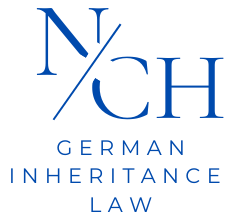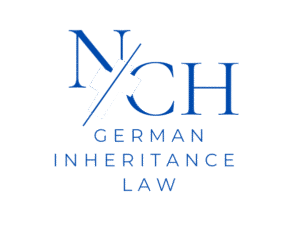Estate Contracts (Erbvertrag) in Germany: A Powerful, Binding Estate Planning Tool
In German inheritance law, few instruments are as binding as the Erbvertrag (estate contract). Unlike a will, which can be changed unilaterally at any time, an estate contract creates legal certainty and commitment. Once signed, it can only be altered or revoked with the agreement of all contracting parties. For couples, business owners, or families with international assets, this offers stability—but also requires careful planning to avoid unintended consequences.
The estate contract is a powerful tool, but also a restrictive one. It is particularly useful for unmarried partners, blended families, or entrepreneurs who want to secure succession beyond dispute. At the same time, its binding nature means flexibility is lost—changing the contract later is possible only with all parties’ consent or under very narrow legal grounds. For U.S.-based testators with German assets, the Erbvertrag is often the only way to guarantee recognition of arrangements that would otherwise not be protected under German statutory succession.
- Make It Binding. Make It Work.
- What Is an Estate Contract?
- Estate Contract vs. Will
- Typical Uses of Estate Contracts
- Pros of Estate Contracts
- Cons of Estate Contracts
- Risks and Mistakes to Avoid
- International Aspects of Estate Contracts
- Termination and Withdrawal
- Frequently Asked Questions (FAQs)
- 5 Top Tipps
- Conclusion
What Is an Estate Contract?
The estate contract is a binding agreement on inheritance matters under German law. It must be notarized and signed by all parties. Key features include:
- It cannot be revoked unilaterally—mutual agreement is required.
- It may include heirs, legatees, or compulsory-share waivers.
- It can only be challenged for serious defects such as error, fraud, or coercion
In practice, estate contracts are often combined with testamentary provisions or inheritance contracts to create comprehensive estate plans.
Estate Contract vs. Will
- Will (Testament): Unilateral, revocable at any time. Flexible but less secure for others.
- Estate Contract (Erbvertrag): Binding, requires signatures of all parties. Provides certainty but limits later changes.
Many testators use a combination: certain provisions are secured by estate contract (e.g., business succession), while other matters remain flexible through a will.
Step 1
Step 2
Get a Legal Roadmap
Step 3
We Handle Everything
Typical Uses of Estate Contracts
- Unmarried couples: Since German law grants no statutory inheritance rights to unmarried partners, an estate contract is often the only secure solution.
- Business succession: Entrepreneurs use estate contracts to guarantee transfer of shares or companies to specific heirs or successors.
- Care-for-inheritance agreements: Where one person provides long-term care or financial support in exchange for inheritance rights.
- Patchwork families: To balance rights between spouses, children from prior marriages, and new partners.
- Securing compulsory-share waivers: Estate contracts are often combined with notarial waivers of compulsory shares to prevent later claims.
Pros of Estate Contracts
- Strong legal certainty and enforceability.
- Useful in complex family or business constellations.
- Can protect partners who would otherwise have no rights.
- Prevents unexpected challenges after death.
Cons of Estate Contracts
- Very limited flexibility—cannot be revoked unilaterally.
- Higher costs and complexity due to notarization.
- Risk of unintended binding obligations if not carefully drafted.
Risks and Mistakes to Avoid
- Using a will when a contract is needed: For unmarried couples or business succession, a simple will may not provide enough security.
- Overlooking compulsory-share rights: Without explicit waivers, children or other relatives can still claim part of the estate.
- Failing to define conditions clearly: Vague wording creates disputes and litigation.
- Ignoring cross-border issues: A German estate contract may not be fully recognized in the U.S. without parallel planning.
- Skipping legal advice: An improperly drafted contract may be invalid or unenforceable.
International Aspects of Estate Contracts
For cross-border families, estate contracts must align with international succession law:
- Under the EU Succession Regulation, German law generally applies if the deceased was last habitually resident in Germany.
- Estate contracts may not be recognized in some U.S. states without additional instruments.
- Tax planning must address both German inheritance tax and U.S. estate tax, with careful use of exemptions and treaty provisions.
Termination and Withdrawal
Estate contracts cannot simply be revoked. They can only be ended:
- By mutual agreement of all contracting parties.
- By including withdrawal clauses at the outset.
- By judicial challenge for mistake, fraud, or duress.
Without such safeguards, the Erbvertrag remains binding even if circumstances change drastically.
Frequently Asked Questions (FAQs)
5 Top Tipps
- Use an estate contract only when binding obligations are truly necessary.
- Pair it with compulsory-share waivers to avoid later disputes.
- Define conditions in detail—who inherits what, under which obligations.
- Consider adding withdrawal clauses for changed circumstances.
- Always combine with tax planning, especially for cross-border estates.
Conclusion
The estate contract is one of the strongest instruments in German inheritance law. It offers stability and enforceability but reduces flexibility. For international families, entrepreneurs, and unmarried couples, it can be the only way to secure binding arrangements across borders. But because of its risks, an Erbvertrag must be carefully structured, combined with tax and succession planning, and aligned with both German and U.S. law.
German Attorney Nicola Casper-Hoesl advises clients on drafting, negotiating, and executing estate contracts—binding, enforceable, and tailored to international families.
During a very challenging time both emotionally and logistically, I could always count on Nicola. She expertly guided me through the ins and outs of German inheritance law. It was a pleasure to work with her.
Provided expert legal guidance through a very complex inheritance situation involving German banks, courts, and tax authorities. Extremely detailed, diligent, and knowledgeable. I would not have been able to resolve all the legal issues without her help. Very highly recommended!
Nicola is very knowledgeable about German /International Law and listens to her clients’ needs during challenging times in their lives.
She is very kind , responsive and efficient in her email & phone conversations. I was delighted to work with her in solving my niece’s case.
I highly recommend Nicola if someone needs any law advice about Inheritance or German/International law cases.
Nicola helped our family recover a €250k inheritance stuck in German probate—without us ever leaving California. Her team handled everything in 8 months.
Nicola is an exceptional attorney with extensive knowledge in German inheritance law. Navigating international legal matters can be frustrating and complex, but Nicola made the process smooth and stress-free. Her professionalism along with clear communication were invaluable throughout the entire ordeal.
If you are in need of a knowledgeable, reliable, and supportive lawyer for inheritance matters involving Germany, Nicola is the best choice! I highly recommend her.

